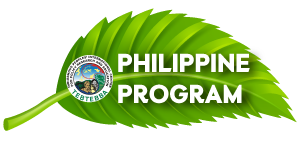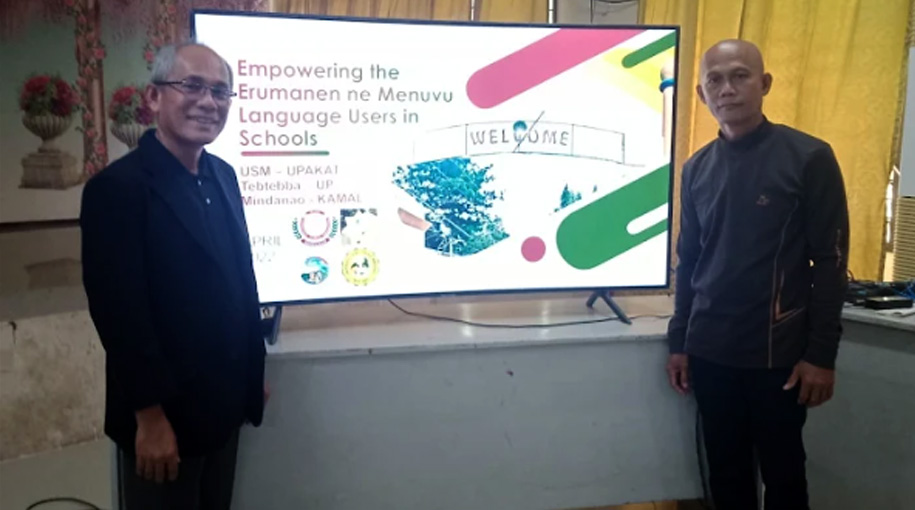On April 25, 2022, the project entitled “Empowering Erumanen ne Menuvu Language Users in Schools'' was launched. Primarily, the project aims to strengthen the language vitality of the Erumanen ne Menuvu and for the said language to be officially recognized and declared as the language of instruction in the Philippine schools that are specifically located in the Erumanen ne Menuvu ancestral domain. Led by the Indigenous Political System Kamal of the Erumenen ne Menuvu (Erumanen for short) people, it makes possible the collaborative work of different stakeholders including the University of Southern Mindanao (USM), Department of Education (DepEd), and Commission in Higher Education (CHED) for the realization of the project objective.
Erumanen ne Menuvu speakers are found in 302 barangays in the provinces of North Cotabato and Bukidnon. Within the traditional clustering, the 302 barangays make up the 13 vansa (community variety) that speak five (5) variants of Erumanen ne Menuvu. The project is divided into three major phases: (1) listing of words, orthography and grammar of the Erumanen Language; (2) formulating a training and literacy guide on how the language should be used as medium of instruction and be taught as a subject within the standards of formal teaching; and (3) training the teachers on how to use the training manual.
At this early stage, three distinguishing features of the project have been noted. First is the respect and recognition accorded to the expertise of knowledge holders and elders of the community who serve as main resource persons to teachers and linguists/facilitators. Their full involvement and leadership in the first phase of the project was fully appreciated by the facilitators and teachers. Second is the dedication of facilitators and resource persons from the academe in training the participating teachers on how to facilitate the process through learning by doing. Professor Ricardo Nolasco, project coordinator, stated that “We will be mentoring and training the participating teachers in the course of the project so that we can also help other ethnolinguistic groups document their language. Third is the high level of efficiency of the project implementation so far.
“I have been doing this facilitating job for years but it is only now that I have been involved in facilitating the listing of words, constructing the grammar, building prototype materials, ensuring correct spelling and translation of five language variants all at the same time. It is very challenging but we are doing it and are progressing,”said Ms. Lot San Diego, the main facilitator of the literacy and literature workshops.
This early, participants have already noted the new knowledge and skills that they have learned from the workshops.
“We know very well that our children are being discriminated against and bullied when they speak our language in their schools. No parent would like their children to be discriminated against so we started to speak to them using the mainstream languages, Bisaya and Tagalog. This workshop re-iterated the importance of our first language,” said Teacher Sonia Porcadilla, an Erumanen ne Menuvo teaching in the Moro areas.
“Our values and culture are embedded in the words passed on to us by our ancestors. I commit myself to work towards the revitalization of our language in our communities,” added Dr. Billy Pobre, another teacher consultant.
The first phase will be completed in May 2022 and the second phase will start in the third week of July 2022.

